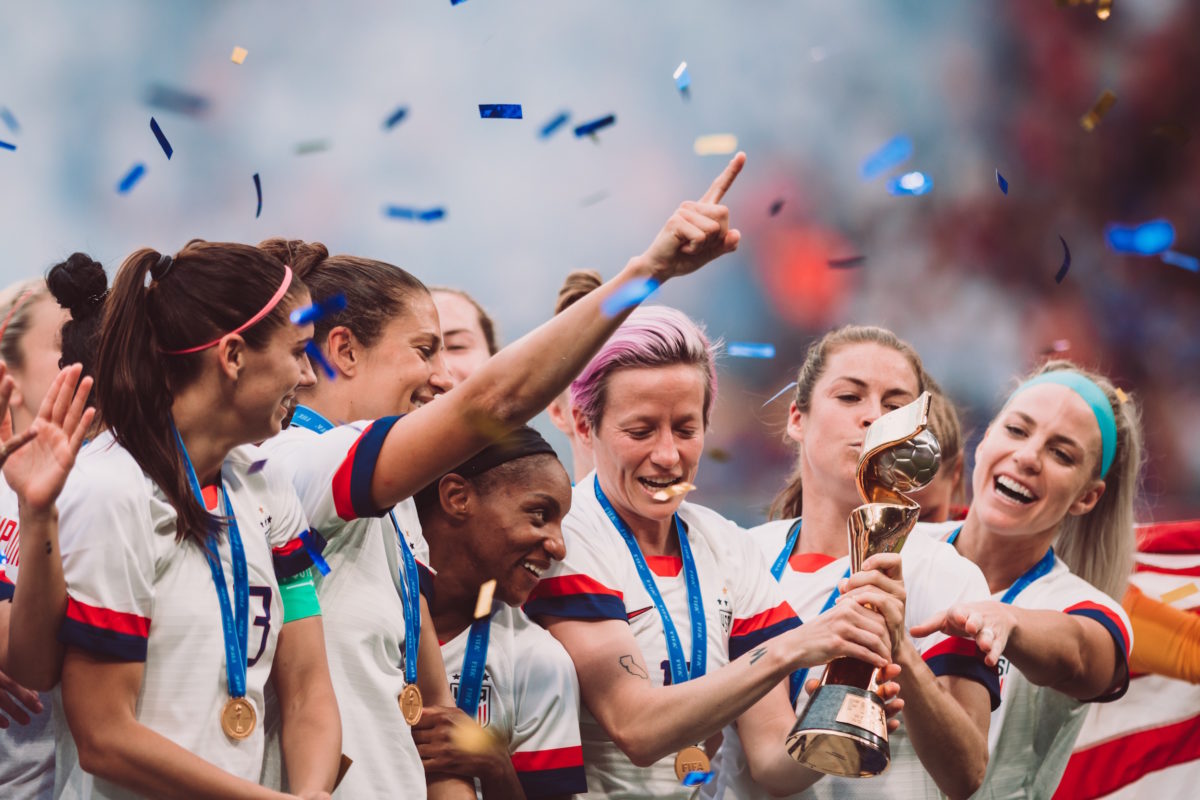Ed. note: this story was intended for publication in October 2019. Due to the vagaries of the media business, it never saw the light of day. We hope you’ll enjoy it as you practice social distancing.
France 2019 will be remembered as a big moment for women’s soccer, I think. In its wake, NWSL attendance experienced what looks—tentatively—more like a rising tide than a wave. In Europe, it catalyzed record sponsorships for clubs and leagues. The hype around it is part of what pushed longtime holdouts from the women’s game, including Real Madrid, to throw their hats in the ring. What’s going to be forgotten—what’s always forgotten about World Cups, on either side of the gender divide—is how much of the competition was brutally sad.
Inequality shapes everything about our world, so of course it also shapes the world’s game, much as we like to believe soccer is a sport that rewards talent, nerve, and perseverance above all. The mythos of the sport says that it only takes a ball to play, and that its heroes come from slums and favelas and banlieues.
And all that—it’s not not true, exactly. Fara Williams really was homeless for six years as a teenager. Nadia Nadim really did learn to play soccer while living in a refugee camp. We love those stories, both because they’re inspiring and because they let us believe soccer exists on a more egalitarian and meritocratic plane of being than ordinary life does.
But at a World Cup, where the teams competing run such a complete gamut from good to bad, rich to poor, the truth comes out. Inequality defines the competition. It’s rarely said directly, because it’s not a nice thing to say, but the majority of the field is always teams that stand literally no chance of winning.
As in every other facet of life, the gap between the haves and the have-nots is bigger on the women’s side than on the men’s side. Plenty has been written on the subject of the massive and universal underinvestment in the women’s game, so rather than repeating any of that, I will simply say that the spectacle of this sport is something I find increasingly hard to participate in.
The social media zeitgeist takes on a specific tone any time there’s a particularly wild game, every tweet screaming “WHAT IS HAPPENING???” and “OH SHIIIIIT!!” I get that this is fun, and I genuinely take no enjoyment in pointing out that too often, at the World Cup, those moments involve teams beset with dysfunction. Australia-Brazil, which ended 3-2, was one such game—Australia, which fired its head coach less than six months before the tournament, edging out Brazil, whose federation has always chosen to pin its hopes on Marta rather than actually investing in the women’s game. The generational talents who have been let down by this sport’s power structures are far too many to name here.
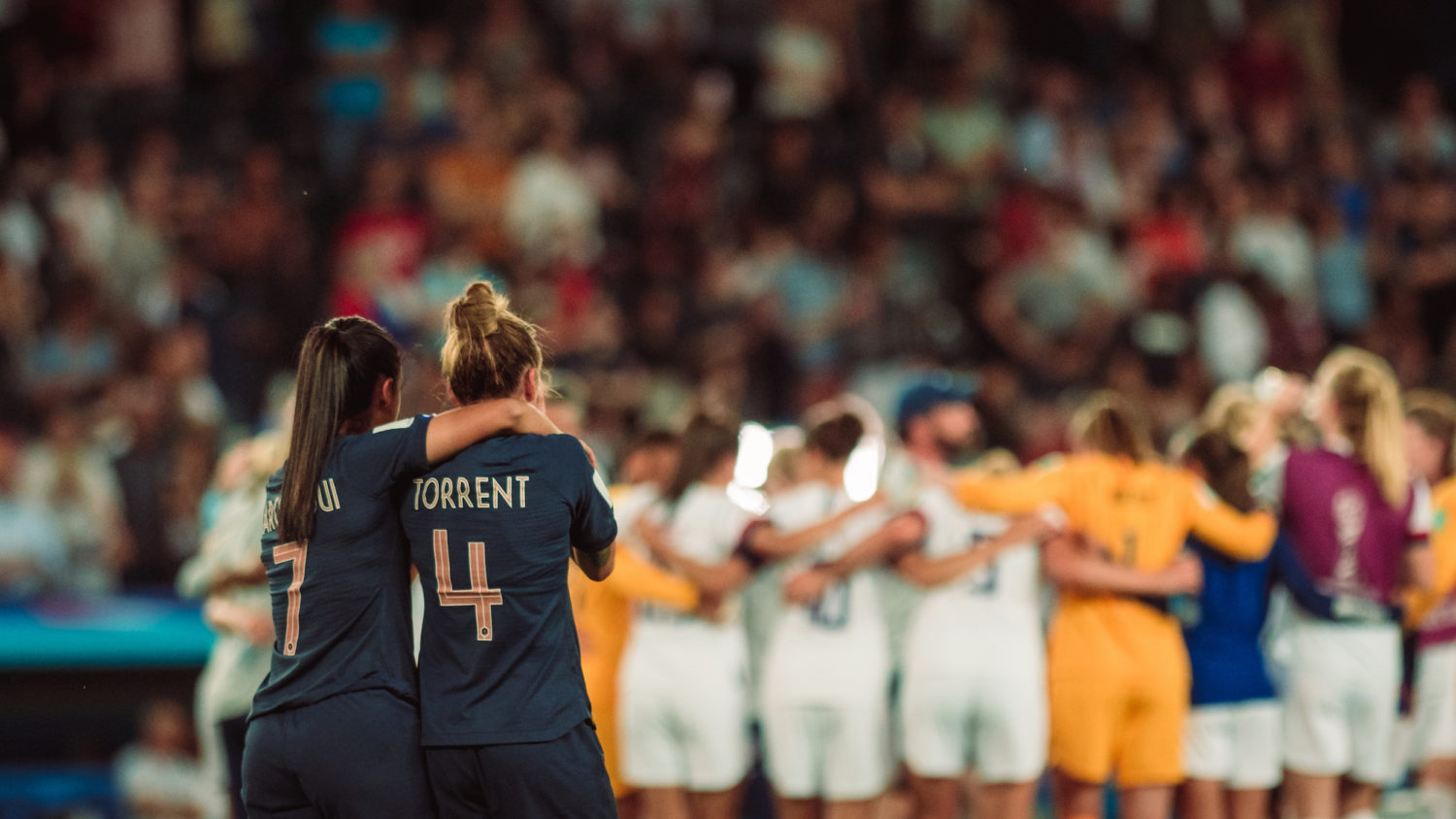
I could try to list all the other times this tournament broke my heart: the time France got to retake a penalty because VAR ruled that Nigeria’s keeper came off her line a fraction of a second early, and won the game as a result. The time Argentina, the worst-supported team in the tournament, came back from a three-goal deficit against Scotland only to have their hopes at a win—which would have sent them to the knockout stage—dashed when the referee cut stoppage time short.
But there is one moment that serves as the tragic, surreal nadir of the whole thing: Cameroon-England.
The social contract in sport rests on the mandate that losers must lose gracefully. So when things didn’t go Cameroon’s way against England, their reaction—not just complaining, but raging, crying, fouling left and right, looking like they were about to either start a fight or walk off the field—was more shocking than an upset win would have been.
It was the most bizarre spectacle to have taken place on a soccer field in recent memory, and the English press, especially, was eager to decry it as “DISGRACEFUL” and “SHAMEFUL.” The fact that the perpetrators were women no doubt worsened the shock to delicate sensibilities.
Taking a step back and thinking about the gargantuan disparity between these two soccer teams, though, you almost have to wonder that such displays aren’t more common. England is a team of professionals who play in a competitive league that recently received a £10 million sponsorship from Barclay’s. Meanwhile, the top-tier competition in Cameroon is one that has been described by Cameroonian journalist Njie Enow as “an underfunded domestic championship staged in appalling conditions.” These two teams compete under a common set of rules, but that’s the only parity that exists between them.
And as it does everywhere, sexism amplifies such inequality. Every women’s team is underfunded compared with their male counterparts. Federations spend money on the men hoping that investment will bring success, while women’s teams aren’t even noticed until they start winning—if they’re given a chance to play at all.
What Cameroon did was not sportsmanlike—but one effect of sportsmanship is to provide a glossy cover for the profound unfairness that shapes our world. At some point, we have to look in the mirror and ask why we value the appearance of cooperation and equality more than the conditions of players’ lives—more, in other words, than actual cooperation and equality.
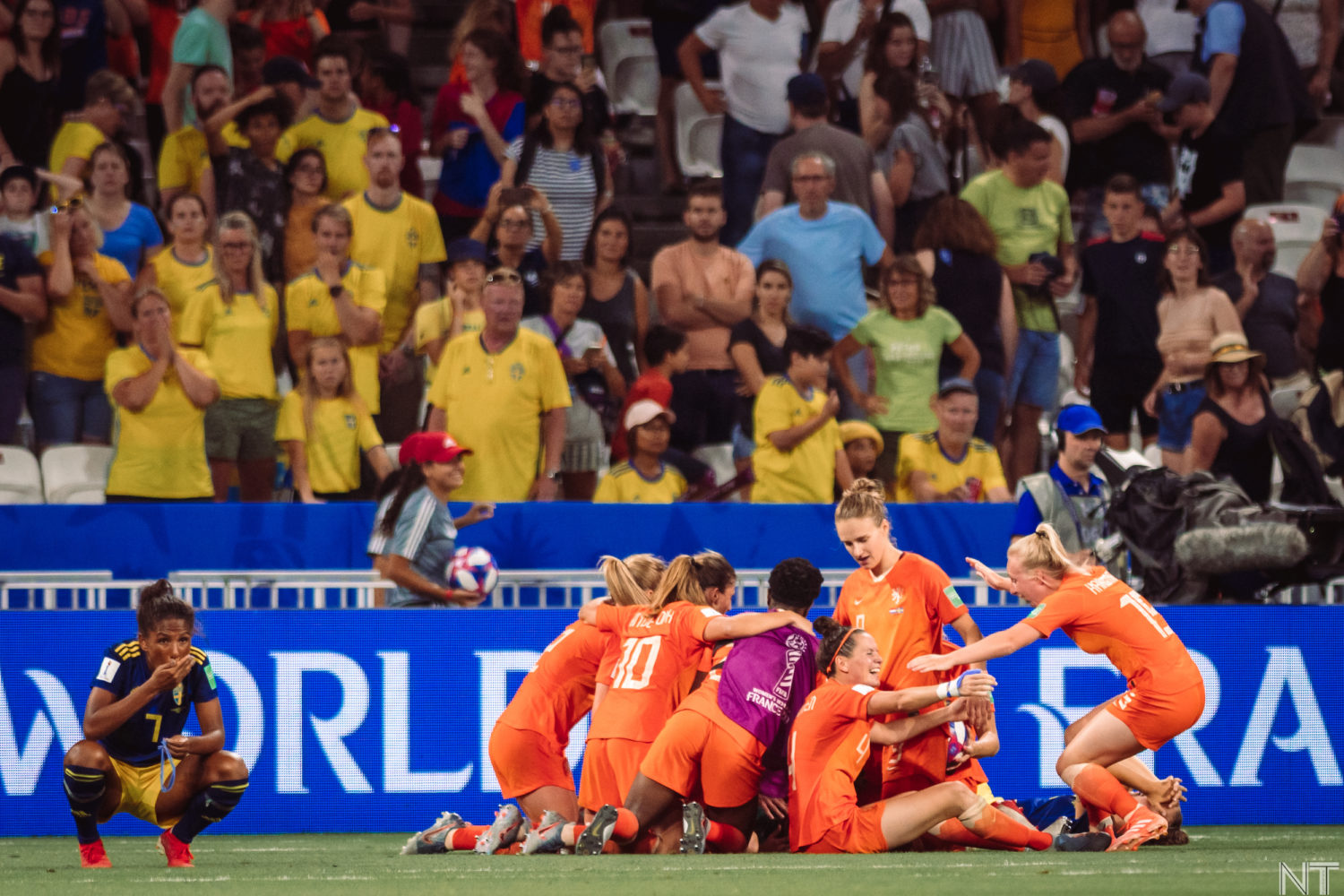
It is at least counterintuitive, and perhaps simply hypocritical of me, to use that moment, the spiritual low point of the World Cup, as framing for what came next.
Heading into the tournament, I did not know how I was going to feel about the US women, the team that, once upon a time, made me fall in love with this sport. The CONCACAF qualifying tournament back in October was an even bleaker showcase of inequality than the group stage of the World Cup, and if the USWNT’s utter dominance in women’s soccer wasn’t embarrassing enough, you may have noticed that this is not an era when it feels particularly good to be an American.
And then, come the knockout rounds, I found myself rooting for them—not resignedly or out of some sense of obligation, but really, from the depths of my heart, wanting this team to win.
If there’s one strictly soccer-related lesson from France 2019, it’s that the US remains, and likely will remain for some time, the best women’s soccer team in the world. It is not close. They had by far the most challenging schedule of any team, and hardly broke a sweat as they beat both France and England. None of the other supposed contenders—Australia, Germany, Japan—ever looked like possible world champions. There should never have been a question that the US was going to repeat their 2015 victory.
All this, of course, epitomizes the unfairness I spent the first half of this essay detailing. We live in the richest and most powerful country on earth, and our women’s national team is the best-supported in the world. We are Goliath and everyone else is David.
But the reason for that huge disparity doesn’t boil down to a simple question of GDP. Of course it does have to do with that, but it also has to do with the fact that 50 years ago, this country did one small thing right for American women, in passing Title IX, which made it normal for girls to play soccer at a time when that was illegal in many traditional footballing countries.
In simply giving girls the opportunity to play sports, this law converted our huge population into a huge player pool, something you can still see in the USWNT’s incomparable depth: the 2019 roster comfortably contains two full lineups that would be in the top five in the world. That says something about who we are as a country, or at least who we aspire to be. I have never had a lot of patriotic feelings, but I’m proud of that.
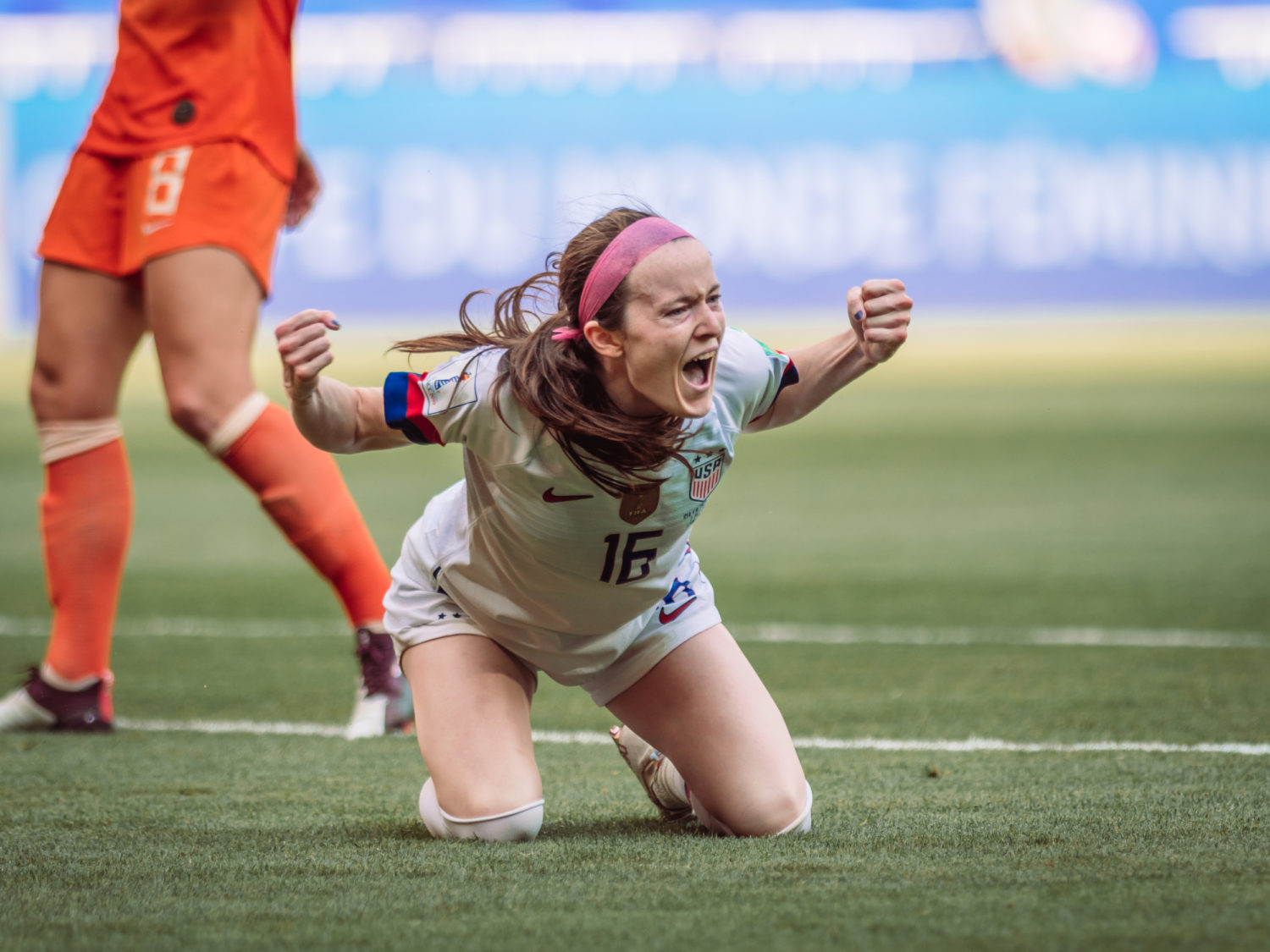
Somewhere in the multiverse, there’s a version of earth where women’s soccer is just as popular as men’s, where poverty doesn’t exist, where people can live how they want to live and be who they want to be regardless of where they were born, what they look like, who they love. We do not live in that world. We live in a world where the president of the most powerful country on earth has openly bragged about committing sexual assault.
And in this world, the US women’s national team—the whole institution, but especially this particular US women’s national team—is a rare and special thing. It’s a comfort.
Earlier, I wrote that soccer doesn’t exist on some higher plane where injustice vanishes—and our women’s national team is subject to the coarse vulgarity of sexism and homophobia and racism and everything else. But watching them win the World Cup, it felt like they were above all that.
The 2019 USWNT was the best, on the field, that they have ever been, and I hope it’s not too corny of me to say they were the best off the field, too.
That clip of Megan Rapinoe saying she wasn’t going to the fucking White House? That clip was a month old by the time it blew up on social media. We should never have been talking about it. But so help me, I liked it. The virality of that moment was intentional, and not in a way that benefitted her or her teammates—but she handled it with remarkable grace and composure.
For the first time in their history, this team was not concerned with projecting an image of family-friendly wholesomeness. They swore in public and celebrated with abandon. They were, as a group, incredibly gay. What they projected, instead of the traditional dumbed-down, for-all-the-little-girls-out-there image, was one of strength and outspokenness and pride, as 23 women who play soccer.
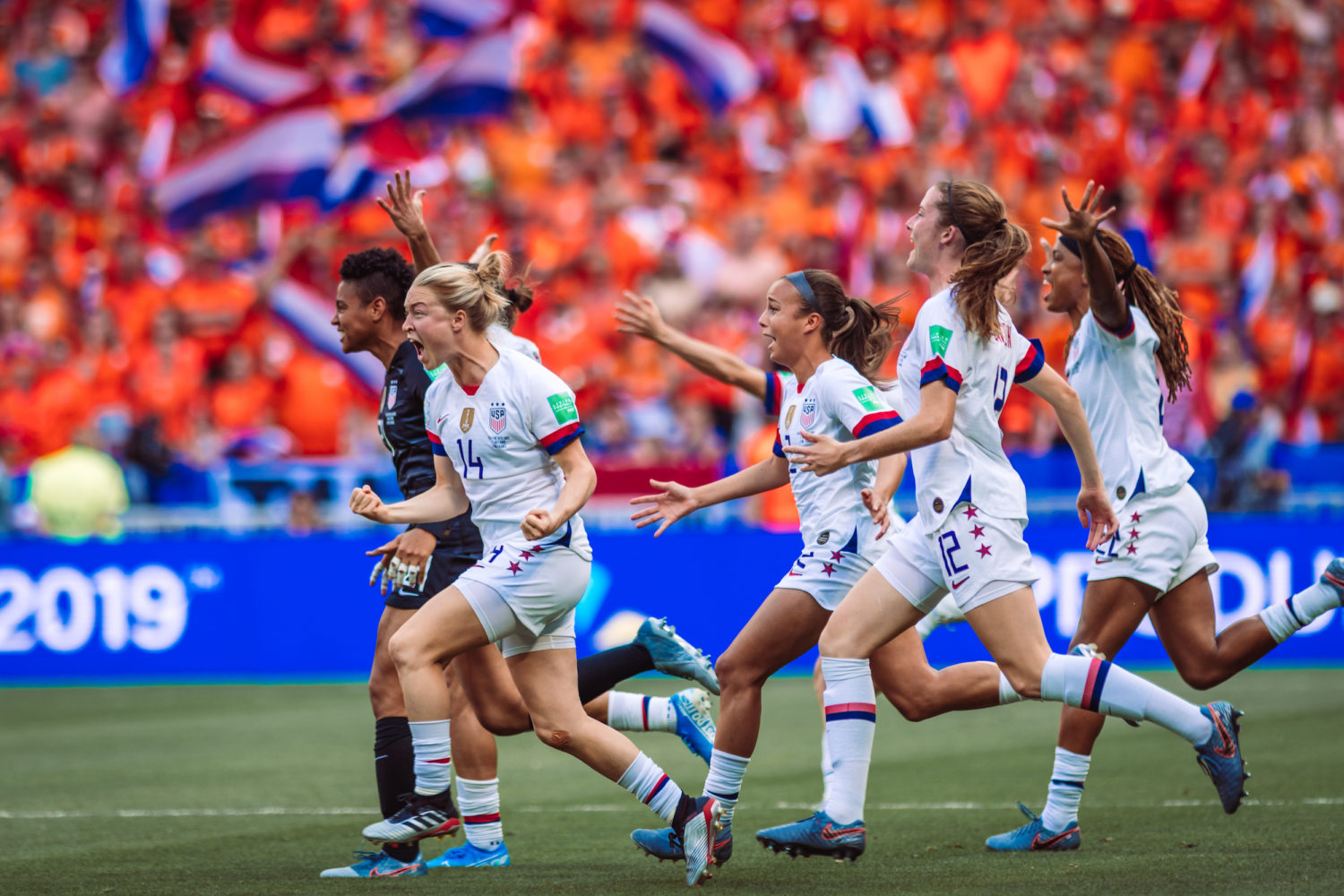
And whatever base stupidity anyone tried to level at them simply bounced off, because they won, and did it in an absolutely clear and irreproachable fashion. Win like that, and you’re untouchable. All the nonsense about the goal celebrations, all memory of our idiot president tweeting at Rapinoe, faded into background noise as they sprayed Budweiser on each other and yelled “I’ma knock the pussy out like fight night!” in unison (it’s a Migos song).
This is the paradox sports present us with. They exist firmly in our mercilessly unfair reality, but at their best, they involve a suspension of disbelief that lets us forget that reality. I hope, without much optimism, that by the next World Cup, our reality might be a little less unfair. But even if it’s not, this tournament is the kind of space that’s much too rare—one where sometimes, good guys win.

